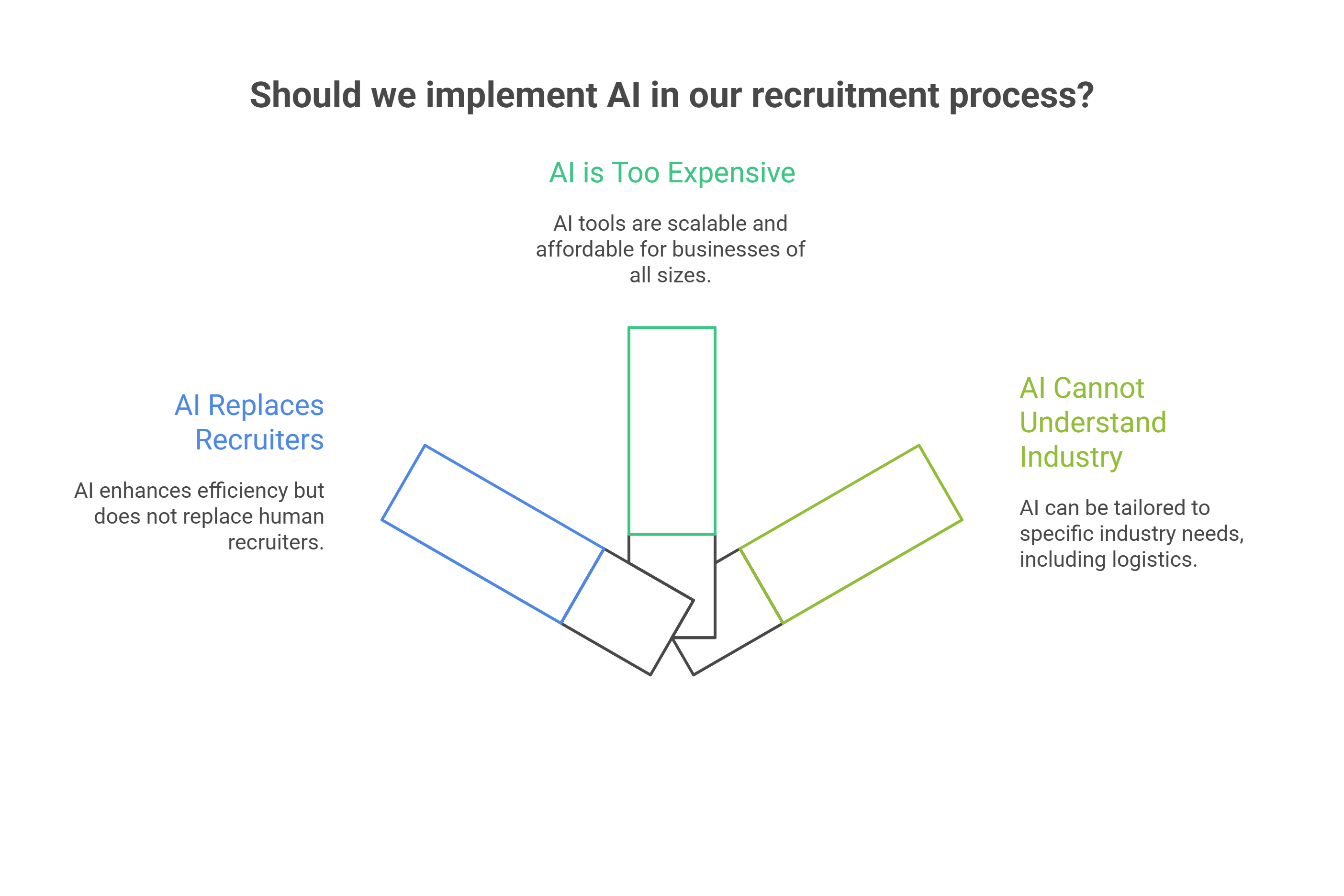Smart Hiring: Leveraging AI for Candidate Matching in Logistics

When you think about hiring in the warehousing and logistics sector, you might picture stacks of resumes, a few too many coffees, and a mountain of decisions. In today’s hiring climate, that pile of paper is not only overwhelming but also inefficient. Modern recruitment is not just about reading resumes. It is about finding the right fit faster, more accurately, and with fewer headaches.
Artificial Intelligence has made its way into warehousing and logistics recruitment in Australia, offering tools that can sift through resumes, match skills with job requirements, and even predict future performance. You are no longer alone in the hunt for that needle in a haystack. AI is your magnifying glass, your filter, and your shortlist builder.
Why AI is Changing Recruitment in Logistics
The logistics industry thrives on efficiency. Goods need to be moved on time, every time. The same principle applies to hiring. Every day a role is unfilled can mean lost productivity, delayed shipments, or overworked staff. AI-powered recruitment methods help reduce these delays by quickly identifying the most suitable candidates.
Chandler Personnel has recognised the benefits of applying AI to the recruitment process. From resume parsing to skill matching, these tools allow you to make informed decisions without spending countless hours reviewing irrelevant applications.
Resume Parsing: Making Sense of the Paperwork
If traditional resume screening is like fishing with a net and hoping for the best, resume parsing is like fishing with a smart rod that knows which fish you want.
AI-driven resume parsing scans applications for relevant keywords, qualifications, and experience. It can organise data into categories such as education, work history, certifications, and skills. Instead of flipping through each page, you get structured information at your fingertips.
In warehousing and logistics recruitment, resume parsing can identify candidates who have worked with specific inventory systems, have forklift licences, or have managed certain shipment types. It saves you from sorting through stacks of applications from people whose experience is unrelated to the role.
.png)
Skill Matching: Aligning Candidates with Your Needs
Finding someone with the right skills is like matching puzzle pieces. It has to fit perfectly. AI skill matching compares a candidate’s capabilities with the requirements of your open position.
For example, if you need a warehouse supervisor who can manage high-volume seasonal demand, AI can assess resumes for leadership skills, past seasonal workload management, and specific safety certifications. This is not guesswork; it is targeted assessment.
In Australia’s competitive logistics sector, this can mean hiring a candidate who is ready to hit the ground running without months of training.
Predictive Analytics: Hiring for Today and Tomorrow
A resume tells you where a candidate has been. Predictive analytics can give you a glimpse of where they are going.
AI can analyse patterns in candidate data, past performance in similar roles, and industry trends to predict how successful a candidate might be in the role. In warehousing and logistics recruitment, this might mean predicting whether a candidate will handle peak periods effectively or stay with the company long term.
By making these predictions part of your hiring process, you reduce turnover and build a more stable workforce. That is a win for productivity and morale.
The Australian Context
The logistics sector in Australia is unique. Large distances, varying climate conditions, and a mix of urban and remote operations create specific hiring needs. AI-driven tools can be customised to these factors.
For instance, hiring for a regional warehouse may require experience with long-haul coordination and knowledge of specific freight regulations. AI can filter for these traits before you even see the candidate’s profile.
Chandler Personnel understands these local requirements and integrates them into their recruitment processes. This ensures that AI is not just scanning for generic skills but for those that matter in the Australian logistics environment.
Balancing Technology with Human Insight
AI is powerful, but it is not a replacement for your judgment. It is more like a reliable assistant who never takes a lunch break. You still need to assess cultural fit, interpersonal skills, and other human elements that AI cannot measure.
Think of AI as your sieve. It catches the big pieces you want, but you still have to decide which ones are worth keeping. By combining AI tools with your experience, you can make hiring decisions that are both efficient and effective.
Steps to Implement AI in Your Recruitment Process
- Define your criteria clearly. Be specific about the skills, experience, and certifications you want.
- Select tools that suit your industry. Some AI systems are built for general hiring; others are tailored to logistics and warehousing.
- Integrate with existing systems. AI works best when it can communicate with your applicant tracking systems and job boards.
- Monitor and adjust. Review your hiring outcomes and adjust the AI filters to improve accuracy.
Benefits You Can Expect
- Faster shortlisting – Save time by focusing only on relevant candidates.
- Better quality hires – Match skills and experience to your exact needs.
- Reduced turnover – Predictive analytics can identify candidates likely to stay longer.
- Scalability – Handle large volumes of applications without extra staff.
Common Misconceptions about AI in Recruitment
- “It will replace human recruiters.” It will not. It simply helps you work more efficiently.
- “It is too expensive for smaller companies.” Many AI tools are scalable and affordable for businesses of different sizes.
- “It cannot understand my industry.” When configured properly, AI can be tailored to specific industry needs, including logistics.

Where Chandler Personnel Fits In
Chandler Personnel combines AI tools with industry expertise to improve recruitment results for the logistics sector in Australia. Their processes include resume parsing, skill matching, and predictive analytics tailored to warehousing and logistics.
If you want to see how their services fit your hiring goals, you can visit their dedicated Warehousing and Logistics Recruitment page.
Final Thoughts
AI in recruitment is not about replacing people with machines. It is about removing the noise so you can focus on what matters: finding the right person for the job. In logistics, where timing and accuracy are everything, AI gives you a head start.
When you blend technology with your own insight, you not only make smarter hiring decisions, you also set your business up for long-term success.
If you are ready to bring accuracy, speed, and confidence to your hiring process, contact Chandler Personnel today. Visit Warehousing and Logistics Recruitment to learn more about AI-powered candidate matching tailored to your needs.